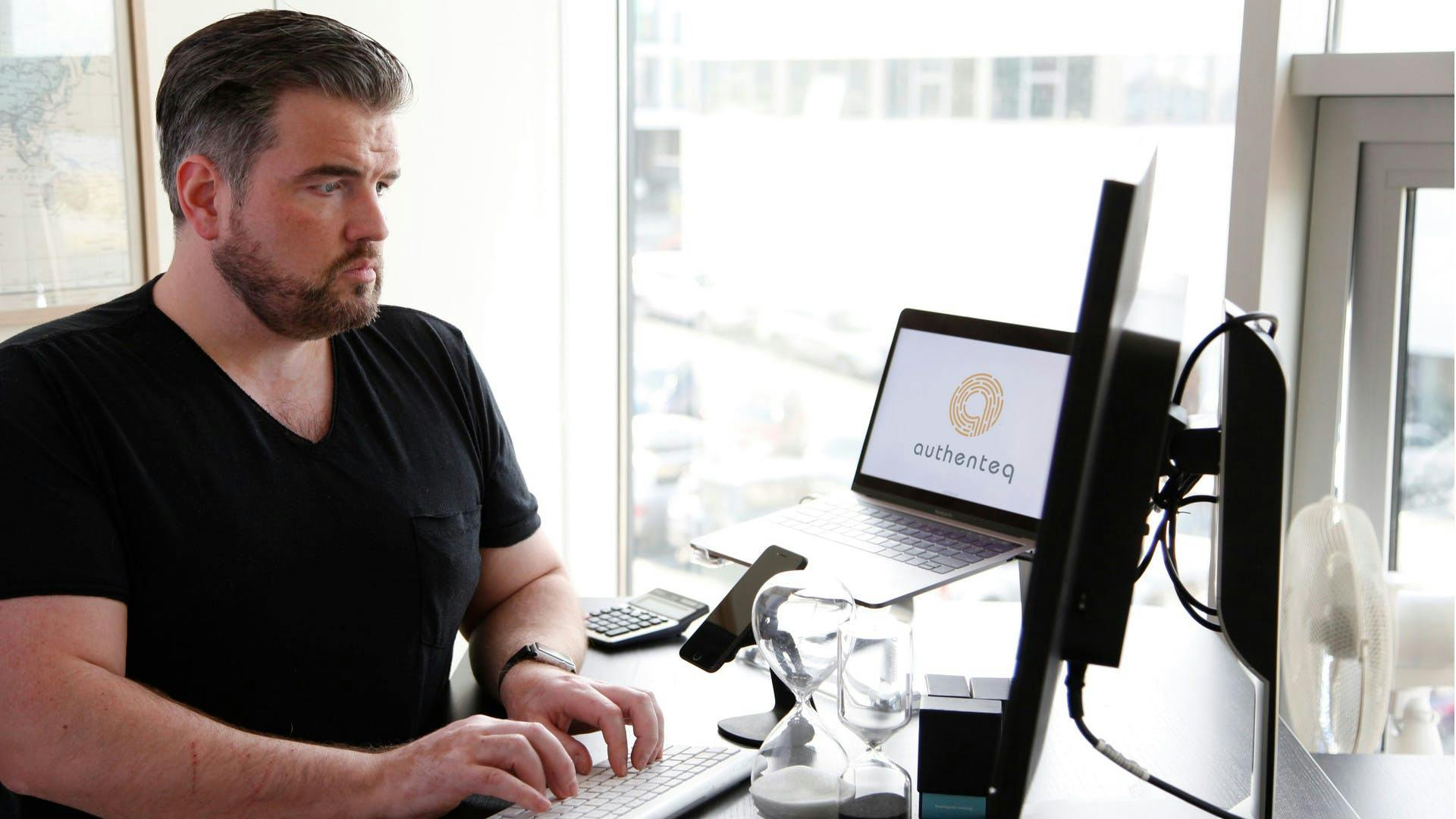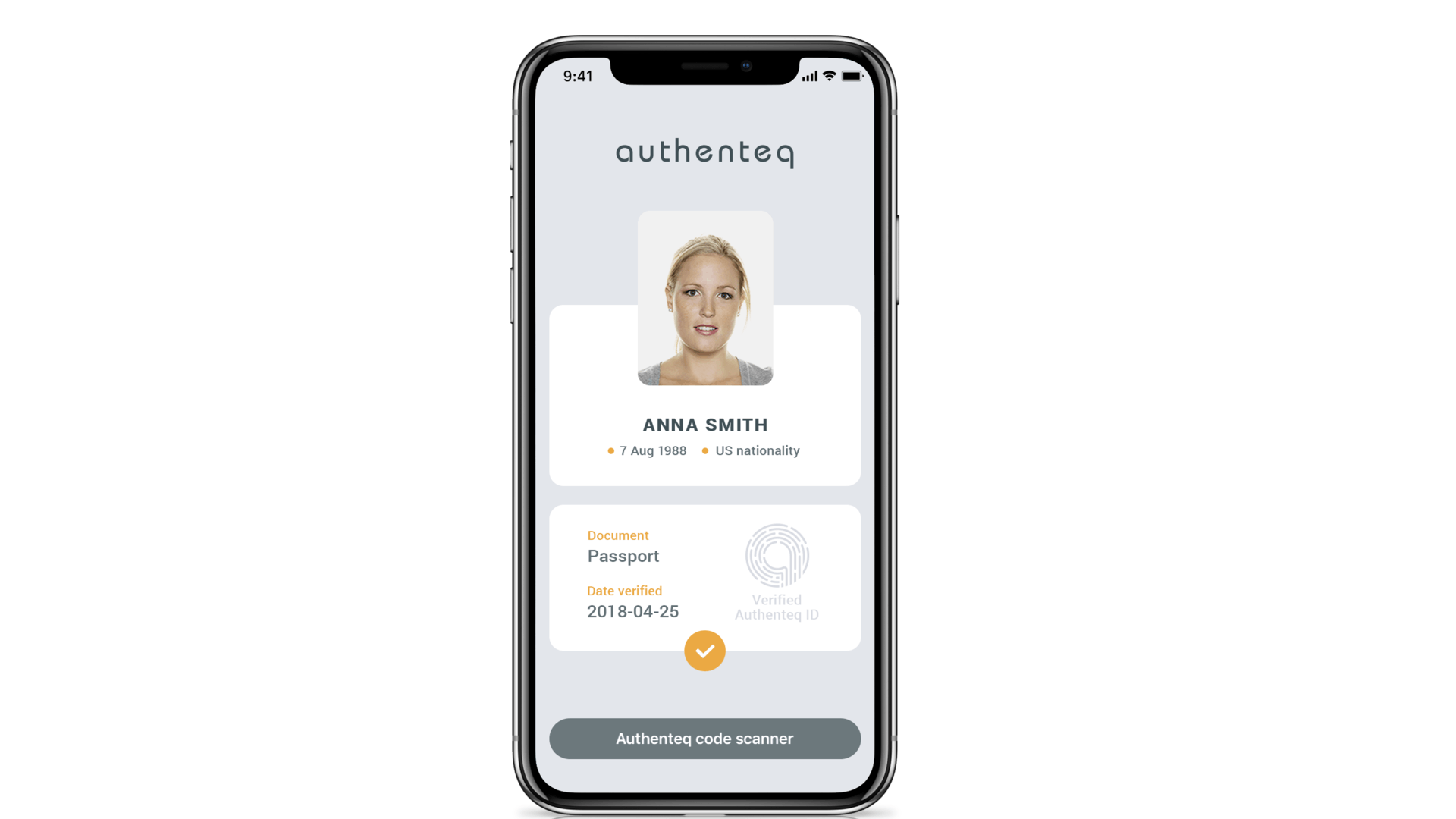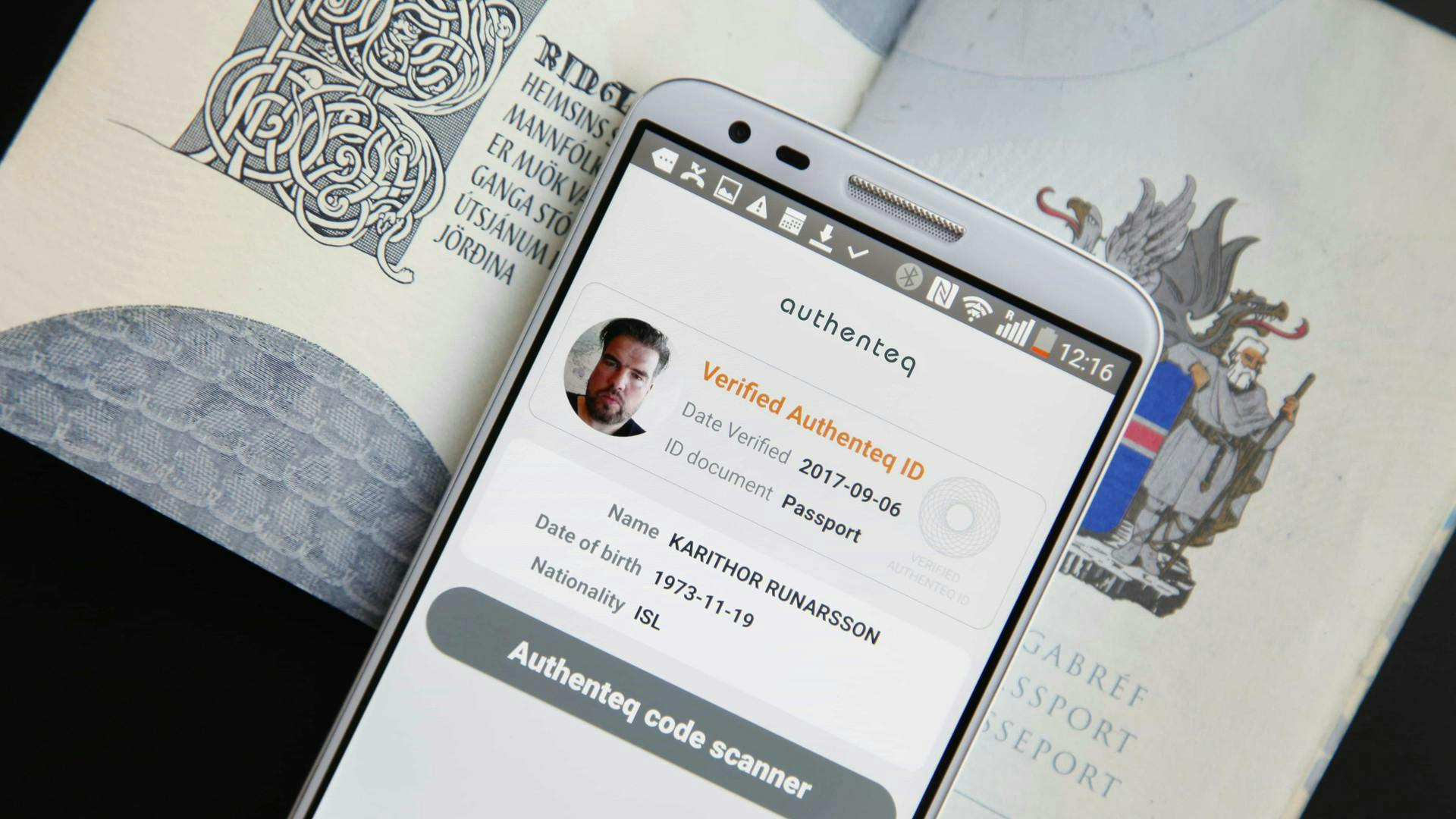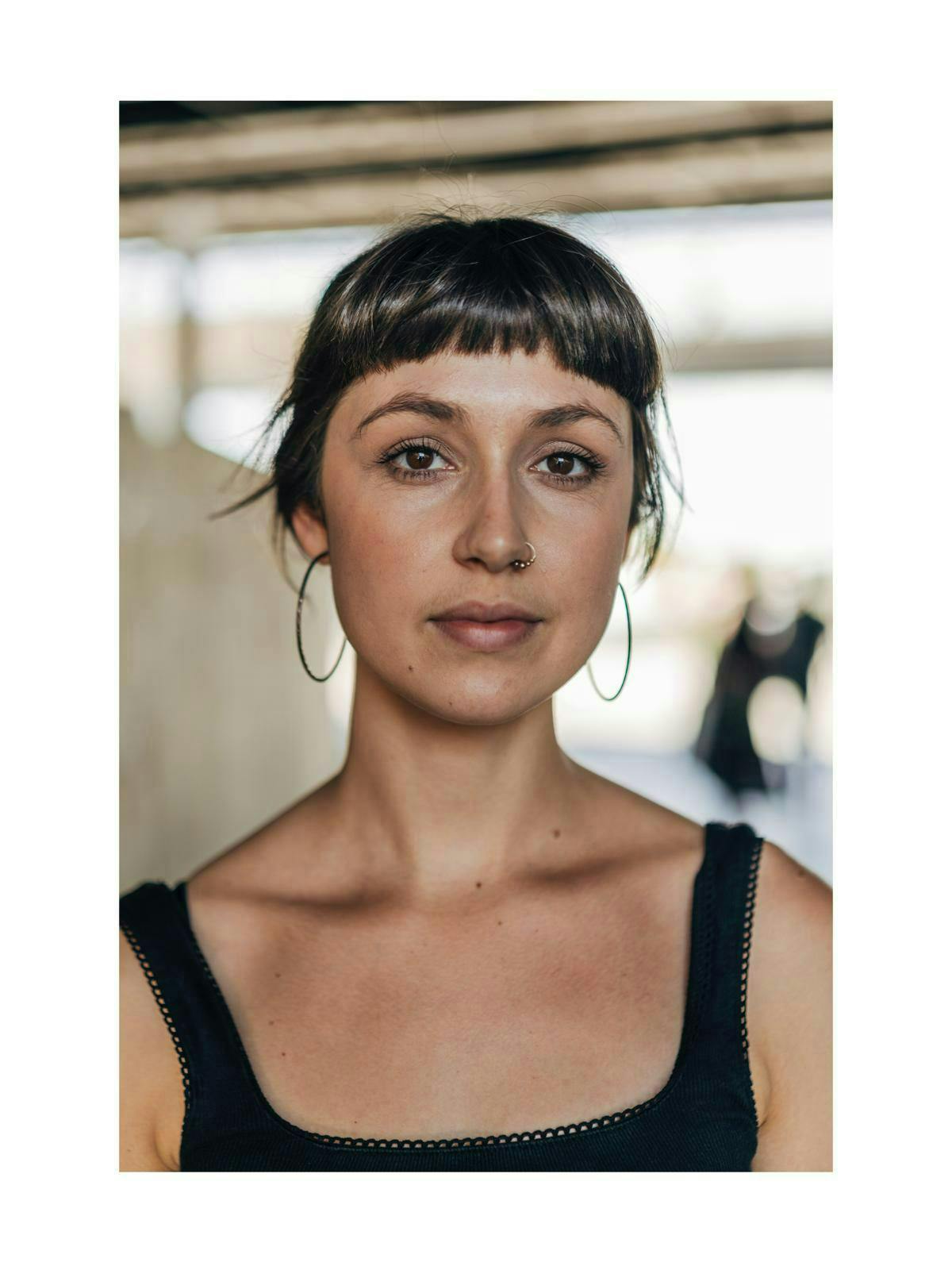How one Reykjavik startup’s global mindset helped it disrupt the ID verification market
hile Reykjavik’s support for early stage startups is unparalleled, the size of its market can prove to be limiting for companies with global ambition. We chatted to identity verification startup, Authenteq, about the challenges of starting up in Reykjavik and the steps they took to pique the interest of world-class investors.
In a world where identity theft and high-profile data breaches are becoming increasingly commonplace, the need to verify a person’s identity online has become that much more important.
Founded by Kari Thor and Runar Karlsson in 2015, Authenteq is an identity verification platform that enables online services, including online marketplaces and fintech services, to verify a user’s real identity in a fast and cost-effective way. In under 60 seconds, Authenteq can validate a selfie taken by the user against their government-issued photograph and provide them with an electronic ID – a “digital passport,” as Kari calls it.
What was important to me in the early stages, and even more so now, was getting funding from investors with international experience.
Whether buying or selling items of high value, opening an account, or even renting out an apartment, Authenteq enables individuals to authenticate themselves online while protecting the sharing of their information to unwanted third parties. “Our service is one way for users to take back some control of their data,” Kari tells Startup Guide.
Authenteq started out as a small company in Reykjavik that was initially bootstrapped with funds from the successful exit of Kari’s previous startup. Since then, the company has had a successful funding history and attracted the support of world-renowned investors – an achievement Kari attributes to their “international mindset.”

Founder Kari Thor Runarsson in Authenteq's Reykjavik office. Photo: Startup Guide
An untapped market
The identity verification market is “largely untapped” but has seen significant growth in the last few years, according to Kari. This can be partially attributed to rising concerns about data protection amongst businesses and consumers.
According to a 2018 Global Fraud and Identity Report by Experian, a consumer credit reporting company, 75 percent of businesses want advanced authentication and security measures in order to establish a relationship of trust with their users.
Meanwhile, a survey among US-based consumers conducted by identity management platform Janrain in 2018 reveals that people are becoming more aware of the risks of sharing their personal information digitally. Consumers are also asking companies to increase their measures on protecting the data of their users.
“When we started out with our user testing, one of the first questions we were asked was ‘what happens to my data after I share it and who owns my data?’” says Kari. “We are reaching a tipping point where consumers are becoming more conscious of where their information is being shared and stored online, as well as where it’s being harvested, analyzed and, ultimately, sold.”
Authenteq aims to eliminate the risks of data sharing by providing its users with a “self-sovereign digital ID,” which enables them to have complete control and ownership over their online identity.

The Authenteq app acts as a 'digital passport.' Photo: Authenteq
“The information you provide about yourself to a company or organization is saved on your phone and on a private, encrypted blockchain,” Kari says. “Authenteq doesn’t have any access to your information. We just verify that you are who your government photo ID says you are.”
The Nordic countries are often hailed for being on top of technological advances. As such, Iceland is among the countries that already have a nationally sponsored electronic ID. With few Icelandic clients, Authenteq has set up client bases in countries like Germany, the UK and the US. “We had to think internationally from the very beginning,” says Kari.
‘Forward-thinking’ investors
While Iceland offers generous financial support to early-stage startups, the startup environment is “limited in many aspects,” Kari says, particularly when it comes to the “amount of investment money available and the small size of the market.”
Realizing that their capacity for growth in Iceland was limited, Authenteq turned their attention to the international stage. After completing Startup Bootcamp in Copenhagen, Authenteq opened up another office in Berlin. The affordable cost of living in the German capital allowed Kari to “go further on a limited amount of money.”
[ Read also: ‘A tiny market in the middle of the Atlantic’: Challenges to starting up in Reykjavik ]
While Authenteq has received a lot of interest from investors in the last three years, the company has consciously chosen to partner with firms that are “forward-thinking.”
“What was important to me in the early stages, and even more so now, was getting funding from investors with international experience,” Kari says.
In November 2017, Authenteq closed their first seed round of €1.1 million, which was backed by London-based firm Initial Capital and Draper Associates from Silicon Valley.
Tim Draper of Draper Associates, who funded the seed rounds of companies such as Skype, Tesla and SpaceX, has continued his support of Authenteq, alongside Austrian investor Capital 300, in their most recent funding round of $5 million in January this year.
[ Read also: The different types of funding for new entrepreneurs ]
Capital 300 was, according to Kari, interested in closing the funding round swiftly and demonstrated the entrepreneurial mentality of “getting things done quickly.” This gave the company the confidence that they had secured the right investors to help their company continue to scale.
It was also important for Authenteq to “choose an investor with startup experience,” says Kari. He adds that having somebody on board as an investor “that has gone through what you are going through is one of the most valuable things that you can get from an investor. ”

Reykjavik, Iceland. Photo: Unsplash/Tim Trad
An international outlook
When it comes to scaling a company, Kari says it’s necessary for startups from smaller countries in the Nordics to look outside of their immediate surroundings and speak to investors further afield. It’s likely that international investors will have more experience and access to a bigger network.
“We are living in an internet age, where sending an email to an Icelandic investor is just as much work as sending an email to an investor in the startup hubs of London, Berlin or Silicon Valley,” he says. “It's one email, one click.”
With a growing team and additional offices located in Berlin, London and Palo Alto, Authenteq has ambitious goals to make the internet a safer place.
The startup of over twenty employees plans to introduce a variety of disruptive services to the identity verification market. Their recently launched product, Trollteq, for example, uses the same core technology as the Authenteq ID to help website administrators ban internet trolls.
Kari says that “the lack of integrated identity online is one of the crucial problems going forward,” and that there is a wealth of opportunity for startups in this space.
You can read more about Authenteq and other Reykjavik-based startups in our Startup Guide Reykjavik book.
Main photo: Startup Guide

